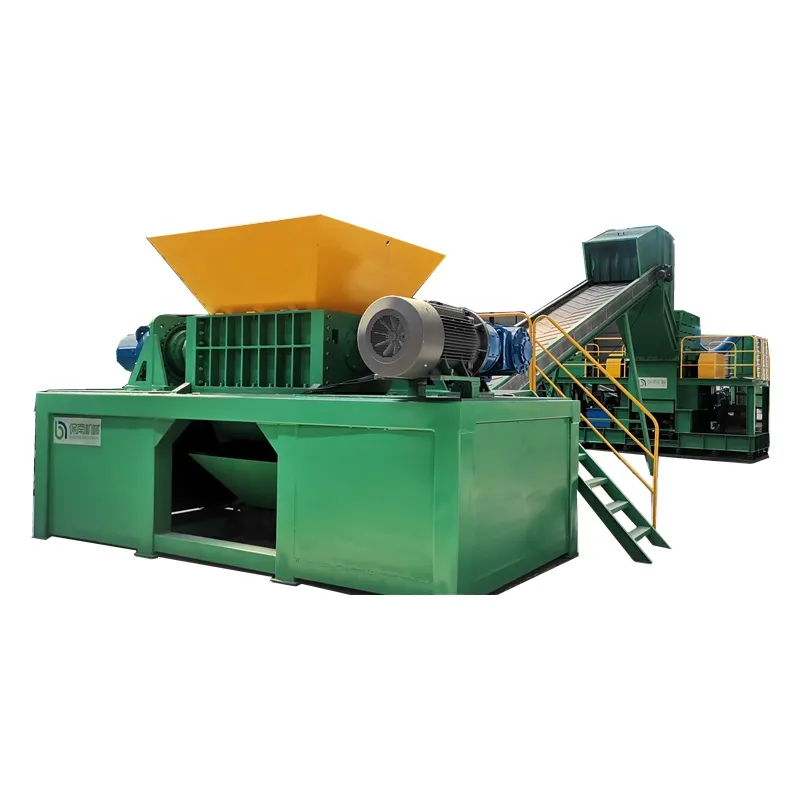

Ene . 02, 2025 12:46 Back to list
The Importance of Aluminium Shredding A Green Solution for a Sustainable Future
In recent years, the demand for aluminium has surged dramatically, driven by diverse industries such as automotive, aerospace, construction, and packaging. Its lightweight properties, resistance to corrosion, and recyclability make it a preferred material for numerous applications. However, with the increasing production and consumption of aluminium, the need for efficient recycling processes has never been more urgent. One of the solutions that has gained momentum is aluminium shredding — a process that plays a crucial role in the recycling industry and promotes environmental sustainability.
Aluminium shredding involves breaking down large pieces of aluminium, such as scrap from manufacturing processes or post-consumer products, into smaller, manageable pieces. This process is essential for several reasons. Firstly, it helps to prepare scrap aluminium for further processing, including melting and refining. By shredding the material, it increases the surface area, allowing for more efficient melting and reducing energy consumption during recycling. Moreover, shredding facilitates easier transportation and storage, ultimately streamlining the recycling process.
From an environmental standpoint, the benefits of aluminium shredding are profound. The recycling of aluminium saves significant amounts of energy compared to producing new aluminium from raw materials. In fact, it is estimated that recycling aluminium can save up to 95% of the energy required for primary production. This energy conservation translates into lower greenhouse gas emissions, a crucial factor in the fight against climate change. By promoting aluminium shredding and recycling, we can significantly reduce our carbon footprint and contribute to a more sustainable future.
Moreover, aluminium is an infinitely recyclable material, meaning it can be recycled repeatedly without loss of quality. This characteristic is particularly important in the context of a circular economy, where the goal is to keep materials in use for as long as possible. Aluminium shredding enables the continuous recycling loop, providing a steady supply of high-quality recycled aluminium for manufacturing new products. Industries that utilize recycled aluminium reduce their reliance on virgin materials, further diminishing environmental impacts associated with mining and extraction.

In addition to environmental benefits, aluminium shredding can also drive economic opportunities. The recycling industry creates numerous jobs, from collection and processing to manufacturing and sales. As the demand for recycled aluminium continues to grow, so too does the potential for job creation and economic development in local communities. By investing in aluminium shredding technologies and facilities, companies can support local economies and promote sustainable practices that benefit society as a whole.
Despite the clear advantages of aluminium shredding, there are challenges that must be addressed in order to maximize its potential. One significant issue is the contamination of aluminium scrap with other materials, such as plastics, rubber, and non-ferrous metals. This contamination can complicate the recycling process and reduce the quality of the final product. Therefore, advancements in sorting and shredding technologies are essential to ensure cleaner aluminium streams and enhance recycling rates.
Education and awareness also play crucial roles in promoting aluminium recycling. Many consumers are unaware of the importance of recycling aluminium or how to properly dispose of aluminium products. Public awareness campaigns can help to inform individuals and businesses about the benefits of recycling and the responsible disposal of aluminium items. Encouraging participation in recycling programs can lead to increased collection rates and ultimately enhance the availability of scrap aluminium for shredding and recycling.
In conclusion, aluminium shredding is a vital process in the recycling landscape that supports environmental sustainability, energy efficiency, and economic growth. By transforming waste into a valuable resource, aluminium shredding plays a crucial role in reducing our ecological footprint and promoting a circular economy. As we move forward, it is imperative to strengthen our commitment to improving aluminium recycling processes, investing in technology, and raising awareness among consumers. By doing so, we pave the way for a greener, more sustainable future that benefits both our planet and society at large.
Latest news
The Future of Metal Recycling: Revolutionizing Waste Management
NewsMay.14,2025
Optimizing Waste with Recycling Lines
NewsMay.14,2025
Municipal Solid Waste Sorting Line: Revolutionizing Waste Management
NewsMay.14,2025
Metal Shredders: Essential Tools for Efficient Recycling
NewsMay.14,2025
Maximize Your Profits with a Copper Wire Granulator
NewsMay.14,2025
Home Metal Shredder: A Smart Choice for Your Home Recycling Needs
NewsMay.14,2025